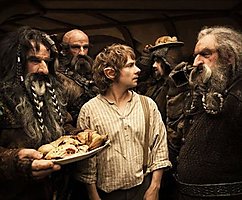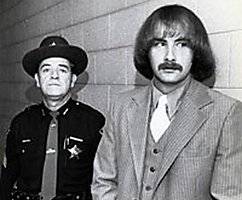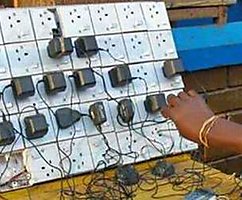One of the biggest mysteries: why with age the time of "accelerated"
 Bashny.Net
Bashny.Net
Doctor of psychological Sciences at the University of California James M. Broadway and his student Britney Sandoval explains why with age it seems that time passes faster and where there are our regrets about flying unnoticed.
"Where's the time?" "Where did the time go?" — often notice elderly and middle-aged people. Many of us feel that time passes faster as we age, and this feeling usually causes regret. According to the psychologist, and Explorer of the BBC's Claudia Hammond, "the feeling that time accelerates when you get older, is one of the biggest mysteries of time experience". Fortunately, attempts to unravel this mystery yielded some intriguing results.
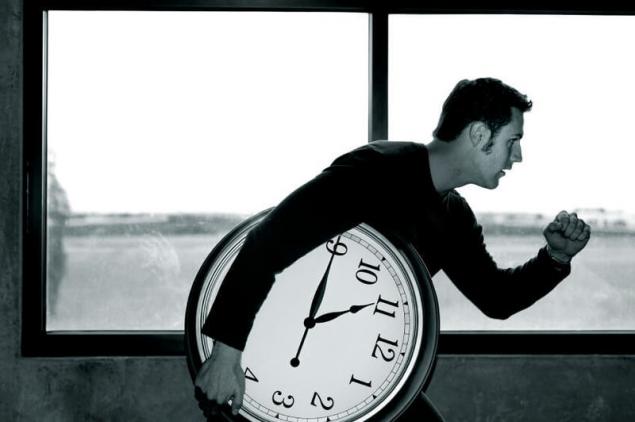
For example, in 2005, the psychologists mark Wittmann (Wittmann Marc) and Sandra Lehnhoff (Sandra Lenhoff), both from the Munich Ludwig-Maximilian University, studied 499 participants aged 14 to 94 years of age in order to determine the speed with which, in their opinion, time goes from "very slow" to "very fast". In the case of shorter periods of time — weeks, months, even years — the perception of time has not changed — the subjects did not seem that time is speeding up with age.
According to most participants, the clock is ticking fast. But with longer intervals, for example, ten years ago, appeared the following picture: older people tend to perceive time as running faster. In response to a request to reflect on their life, participants over 40 years said that time passed slower in their childhood, but then gradually accelerated in adolescence and early adult life.
There are good reasons why older people may feel so. When it comes to how we perceive time, people can estimate the length of the event from two very different points of view:
In addition, our experience of time changes with our actions and thoughts/feelings about it. In fact, when we are having fun, time flies. Enthusiasm for the novel makes the time seem to be passing quickly at the moment. But if we remember this activity later, will seem like it lasted longer than we thought.
What is the reason? Our brain encodes for the memory of a new experience, not a friend, and our retrospective judgement of time based on how many new memories we were able to create within a certain period. In other words, the more memories we build over the weekend, the longer the journey will seem in retrospect.
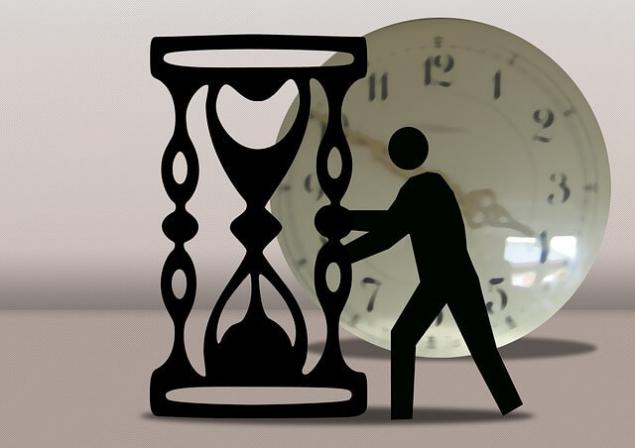
This phenomenon, which Hammond called "holiday paradox" (paradox holiday), it seems, is one of the best clues as to why in retrospect it seems that time passes faster the older we get. Since childhood and prior to adulthood we experience a lot of fresh impressions and develop countless new skills. But in adulthood, our life is becoming more routine and we are less than strangers points. As a result, our early years become sverhpredelna in our autobiographical memory, and when we think about them, think they lasted longer.
Also interesting: the Cure for old age: why are we so afraid to grow up
Old age in the big city: the right to Life
Of course, this means that we can also slow down time and older. We can change our perception, keeping our brain active, constantly gaining new skills, getting acquainted with new ideas and visiting new places.published
P. S. And remember, just changing your mind — together we change the world! ©
Source: monocler.ru/kuda-uhodyat-gody/
"Where's the time?" "Where did the time go?" — often notice elderly and middle-aged people. Many of us feel that time passes faster as we age, and this feeling usually causes regret. According to the psychologist, and Explorer of the BBC's Claudia Hammond, "the feeling that time accelerates when you get older, is one of the biggest mysteries of time experience". Fortunately, attempts to unravel this mystery yielded some intriguing results.

For example, in 2005, the psychologists mark Wittmann (Wittmann Marc) and Sandra Lehnhoff (Sandra Lenhoff), both from the Munich Ludwig-Maximilian University, studied 499 participants aged 14 to 94 years of age in order to determine the speed with which, in their opinion, time goes from "very slow" to "very fast". In the case of shorter periods of time — weeks, months, even years — the perception of time has not changed — the subjects did not seem that time is speeding up with age.
According to most participants, the clock is ticking fast. But with longer intervals, for example, ten years ago, appeared the following picture: older people tend to perceive time as running faster. In response to a request to reflect on their life, participants over 40 years said that time passed slower in their childhood, but then gradually accelerated in adolescence and early adult life.
There are good reasons why older people may feel so. When it comes to how we perceive time, people can estimate the length of the event from two very different points of view:
- with a promising position — while the event lasts
- from a retrospective point of view — after it ended.
In addition, our experience of time changes with our actions and thoughts/feelings about it. In fact, when we are having fun, time flies. Enthusiasm for the novel makes the time seem to be passing quickly at the moment. But if we remember this activity later, will seem like it lasted longer than we thought.
What is the reason? Our brain encodes for the memory of a new experience, not a friend, and our retrospective judgement of time based on how many new memories we were able to create within a certain period. In other words, the more memories we build over the weekend, the longer the journey will seem in retrospect.

This phenomenon, which Hammond called "holiday paradox" (paradox holiday), it seems, is one of the best clues as to why in retrospect it seems that time passes faster the older we get. Since childhood and prior to adulthood we experience a lot of fresh impressions and develop countless new skills. But in adulthood, our life is becoming more routine and we are less than strangers points. As a result, our early years become sverhpredelna in our autobiographical memory, and when we think about them, think they lasted longer.
Also interesting: the Cure for old age: why are we so afraid to grow up
Old age in the big city: the right to Life
Of course, this means that we can also slow down time and older. We can change our perception, keeping our brain active, constantly gaining new skills, getting acquainted with new ideas and visiting new places.published
P. S. And remember, just changing your mind — together we change the world! ©
Source: monocler.ru/kuda-uhodyat-gody/
Tags
See also
The biggest helicopters
Why with age our body accumulates fat and how to fight it
7 biggest mysteries of Mars (7 photos)
The world's largest
AN-225 "Mriya" - the largest aircraft in the world
10 biggest machinery in the world
Mushroom energy: the biggest mystery
The biggest buildings in the world built over the past 100 years
The largest butterfly on the planet
10 biggest unsolved mysteries of the world





